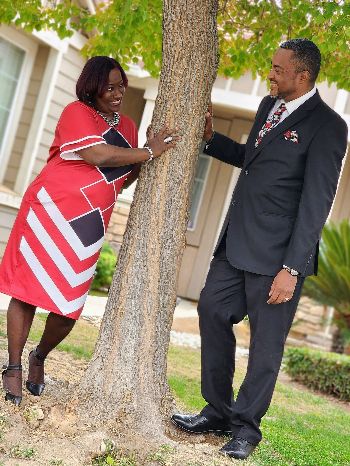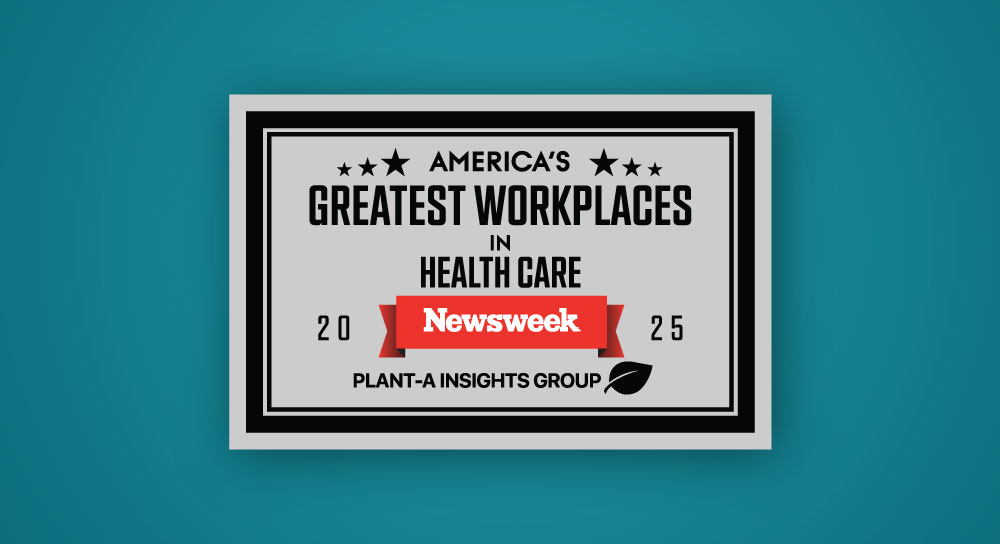Growing up in Illinois as the middle child in a family of seven, Calvin Mays Jr. never thought twice about the pain he felt every day playing with his siblings, until he turned 10.  “When I was about 10 years old, I used to get excruciating pain in my lower back,” said Calvin. “My parents would sit on my bed and rub my back — sometimes for hours — but the pain never went away.” Calvin’s parents thought he might have meningitis, an infection and inflammation of the fluid and membranes surrounding the brain and spinal cord.
“When I was about 10 years old, I used to get excruciating pain in my lower back,” said Calvin. “My parents would sit on my bed and rub my back — sometimes for hours — but the pain never went away.” Calvin’s parents thought he might have meningitis, an infection and inflammation of the fluid and membranes surrounding the brain and spinal cord.
As he got older, he says his pain began to increase and it wasn’t until he went to the emergency room that Calvin learned he was born with sickle cell disease, a genetic blood disorder that disproportionately affects people of African and Hispanic ancestry.
Treatment options and resources for sickle cell disease aren’t widely available in less-populated areas of California because, “There aren’t many providers who understand sickle cell disease well enough to provide patients with life-changing solutions,” said Dr. Mohammed Sani Bukari, hematology oncologist with Community Health Partners and associate clinical professor with UCSF Fresno.
Dr. Bukari leads the Sickle Cell Adult Clinic at Community Cancer Institute on the campus of Clovis Community Medical Center. It's the only adult, comprehensive dedicated sickle cell clinic in the Central Valley.
Serving a population in need
Traditionally, sickle cell disease is predominantly found in individuals of African or Hispanic ancestry. More recently, however, Dr. Bukari says due to an increased amount of interracial and interethnic marriages, it’s becoming increasingly common to find the gene in second- or fourth-generation individuals who may not have a clearly-defined ancestry.
According to Dr. Bukari, the life expectancy of an adult living with sickle cell disease is only 42 years — more than 30 years lower than the national average of 77 years. In the United States, up to 100,000 people live with sickle cell disease. In California, there are approximately 11,000 people living with sickle cell disease with at least 200 of those patients living in Fresno and surrounding areas.
“Pediatric hematology oncologists and other specialists have done great work caring for patients as soon as they are born because of newborn screenings,” Dr. Bukari explained. “But commitment from many healthcare institutions to help adult-aged patients is suboptimal.”
For adults, Dr. Bukari says there are three things that are lacking to help those with the disease: a lack of availability to providers who are trained in managing sickle cell, a lack of adult clinics specializing in sickle cell care, and a lack of education for patients to help manage their pain.
Filling the care gap from pediatrics to adult services
“Once I knew I had [sickle cell] disease, I didn’t know where to go,” Calvin explained. “When I would get pain episodes or crises, as I call them, I would take lots of Tylenol and work through the pain. I would go to the emergency room and wait for hours just to get medicine to help relieve it. But there just wasn’t enough medicine to help numb the pain I felt.”
When his family moved to California, Calvin said his next crisis was so excruciating that he went to the emergency room at Clovis Community Medical Center and was immediately referred to the sickle cell clinic.
“Since I’ve been coming to this clinic, I’ve learned so much about this disease and how it affects my body,” Calvin said, explaining his relief when he found Dr. Bukari and his team. “If it hadn’t been for [the clinic], I would be in a worse position on my own.”
The sickle cell clinic exists to fill the gap in care for patients transitioning from pediatric care to adult services. The clinic offers comprehensive, same-day pain management to help prevent patients from using the emergency department as a source of pain management. “Our goal is to reduce patient use of the emergency room and improve the care provided with new medications and techniques,” said Dr. Bukari.
Stress management is key to fighting sickle cell
People with sickle cell anemia inherit a gene from both parents that causes red blood cells to lose their flexibility so they’re unable to squeeze through small blood vessels. Much of the changes that the red blood cells undergo is due to a carrier’s levels of stress. When the body is exposed to stress, the red blood cells change shape into a crescent or sickle shape.
“When the cells change to these abnormal shapes, they can essentially stick together within the small blood vessel, causing reduced or blocked blood flow,” said Dr. Bukari. This reduced blood flow can affect other organs and increase a patient’s risk of stroke, organ failure and ongoing severe pain.
Calvin, now in his early 50s, says he’s been able to manage his disease thanks to Dr. Bukari and his team. He says listening to your body, making healthier food choices and understanding what can trigger stress is key to helping maintain a balanced life and living with sickle cell disease.
Creating a one-stop shop for patients
A multispecialty approach is key to much of the clinic’s success. Dr. Bukari’s team works with other specialists within Community Health System, including: palliative medicine for same-day pain management, orthopedic surgeons to help patients in whom the disease has affected their joints and bones, and gynecologists to help patients navigate high-risk pregnancies.
The clinic also collaborates with community partners like the West Fresno Family Resource Center to help patients find transportation to appointments and the Cayenne Wellness Center, a local sickle cell advocacy and support organization.
“I can’t say enough good things about Dr. Bukari and his team,” said Calvin. “They listen to me. I listen to them. I consider the team an extended family.”





